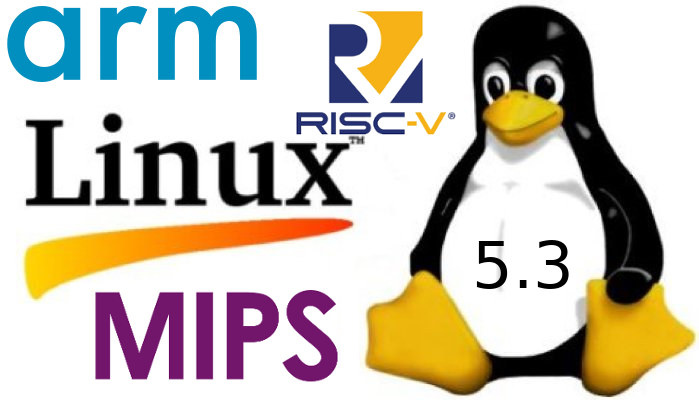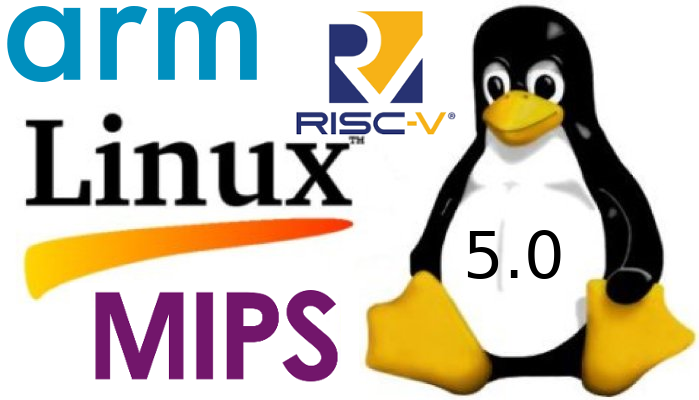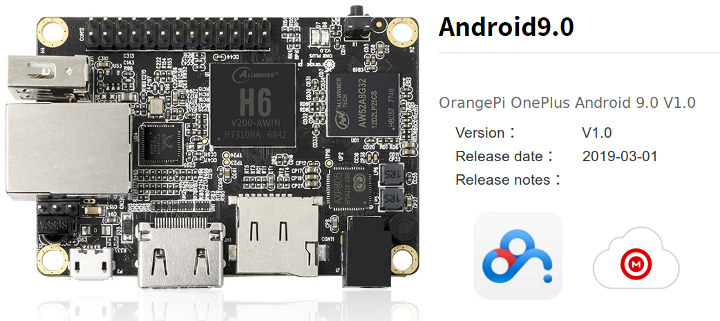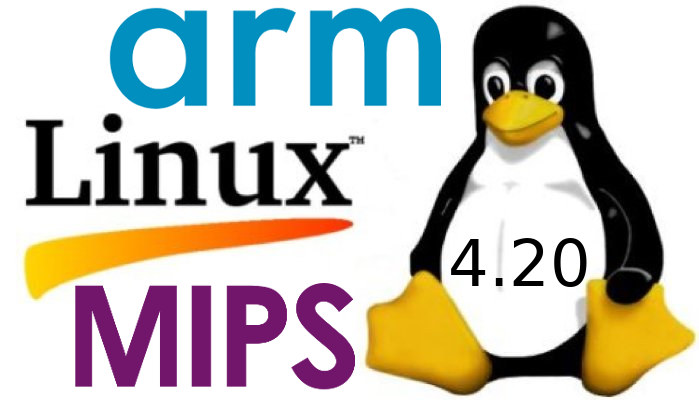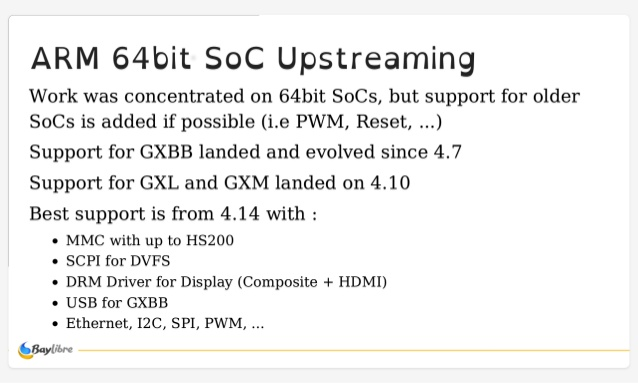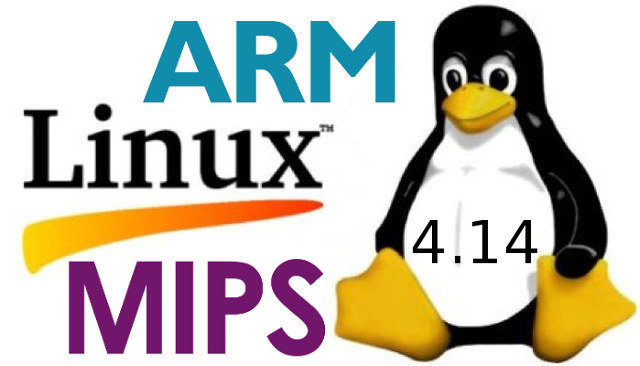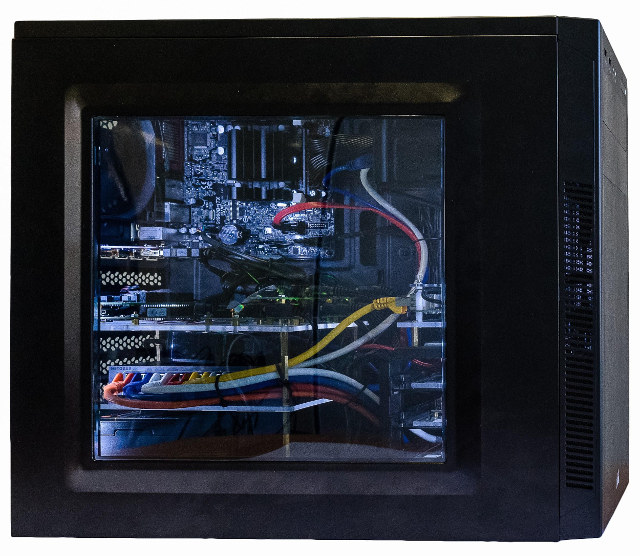Linus Torvalds has just announced the release of Linux 5.3: So we’ve had a fairly quiet last week, but I think it was good that we ended up having that extra week and the final rc8. Even if the reason for that extra week was my travel schedule rather than any pending issues, we ended up having a few good fixes come in, including some for some bad btrfs behavior. Yeah, there’s some unnecessary noise in there too (like the speling fixes), but we also had several last-minute reverts for things that caused issues. One _particularly_ last-minute revert is the top-most commit (ignoring the version change itself) done just before the release, and while it’s very annoying, it’s perhaps also instructive. What’s instructive about it is that I reverted a commit that wasn’t actually buggy. In fact, it was doing exactly what it set out to do, and did it […]
Embedded Linux Conference (ELC) Europe 2019 Schedule – October 28-30
I may have just written about Linaro Connect San Diego 2019 schedule, but there’s another interesting event that will also take place this fall: the Embedded Linux Conference Europe on October 28 -30, 2019 in Lyon, France. The full schedule was also published by the Linux Foundation a few days ago, so I’ll create a virtual schedule to see what interesting topics will be addressed during the 3-day event. Monday, October 28 11:30 – 12:05 – Debian and Yocto Project-Based Long-Term Maintenance Approaches for Embedded Products by Kazuhiro Hayashi, Toshiba & Jan Kiszka, Siemens AG In industrial products, 10+ years maintenance is required, including security fixes, reproducible builds, and continuous system updates. Selecting appropriate base systems and tools is necessary for efficient product development. Debian has been applied to industrial products because of its stability, long-term supports, and powerful tools for packages development. The CIP Project, which provides scalable and […]
Linux 5.0 Release – Main Changes, Arm, MIPS & RISC-V Architectures
Linus Torvalds has just released Linux 5.0: Ok, so the last week of the 5.0 release wasn’t entirely quiet, but it’s a lot smaller than rc8 was, and on the whole I’m happy that I delayed a week and did an rc8. It turns out that the actual patch that I talked about in the rc8 release wasn’t the worrisome bug I had thought: yes, we had an uninitialized variable, but the reason we hadn’t immediately noticed it due to a warning was that the way gcc works, the compiler had basically initialized it for us to the right value. So the same thing that caused not the lack of warning, also effectively meant that the fix was a no-op in practice. But hey, we had other bug fixes come in that actually did matter, and the uninitialized variable _could_ have been a problem with another compiler. Regardless – all […]
Orange Pi Software Releases – Android 9.0 Firmware, Linux Source Code for RK3399 / MT6737
Shenzhen Xunlong Software is used to release many different variations of their Orange Pi boards, and more often than not they tend to launch their boards fairly early before the software is fully ready. Many of their boards get supported by the community thanks to Armbian, linux-sunxi, etc… but sometimes the company does release firmware or source code themselves, as they did in the last two days with Android 9.0 firmware for one of their Allwinner H6 board, and Linux source code for Orange Pi 4G-IoT and Orange Pi RK3399. Android 9.0 for Orange Pi One Plus Launched in 2017, Orange Pi One Plus was the very first Allwinner H6 SBC launched on the market, and supported Android 7.0 at the time. But following the release of Android 9.0 for Allwinner H6 TV boxes a few weeks ago, you can now also upgrade your Orange Pi One Plus to Android […]
Linux 4.20 Release – Main Changes, Arm and MIPS Architectures
After Greg K-H handling Linux 4.19 release, Linus Torvalds is back at the helm, and released Linux 4.20 just before Christmas: Let’s face it, last week wasn’t quite as quiet as I would have hoped for, but there really doesn’t seem to be any point to delay 4.20 because everybody is already taking a break. And it’s not like there are any known issues, it’s just that the shortlog below is a bit longer than I would have wished for. Nothing screams “oh, that’s scary”, though. And as part of the “everybody is already taking a break”, I can happily report that I already have quite a few early pull requests in my inbox. I encouraged people to get it over and done with, so that people can just relax over the year-end holidays. In fact, I probably won’t start pulling for a couple of days, but otherwise let’s just […]
Mainline Linux on Amlogic S905/S905X/S912 SoCs – 2018 Status Update
BayLibre is working on mainline Linux for Amlogic SoC, and in February of last year, Neil Armstrong gave a presentation entitled “Mainline Linux on AmLogic SoCs” at the Embedded Linux Conference 2017. Neil has recently (actually yesterday) given another presentation about the status of mainline Linux on Amlogic processor at linux.conf.au 2018, so we have some updated information now. He goes through the whole history of upstreaming Linux for Amlogic SoCs, but I’ll provided summary of the new features, and if you have time you can watch the video (25 minutes) embed below, or the slides. Early last year, Linux 4.10 already supported general I/Os, USB host (for S905), Gigabit Ethernet, eMMC/SD/SDIO, PSCI for SMP, and SCPI for DVFS for Amlogic processor, and BayLibre was said to be working on HDMI display support, Mali (as external module), audio input/output, and high-speed eMMC modes. Based on the slide above, with Linux […]
Linux 4.14 Release – Main Changes, ARM & MIPS Architecture
Linus Torvalds has announced the release of Linux 4.14: No surprises this week, although it is probably worth pointing out how the 0day robot has been getting even better (it was very useful before, but Fengguang has been working on making it even better, and reporting the problems it has found). Sure, some of the new reports turned out to be just 0day doing things that just don’t work (ie KASAN with old gcc versions, but also doing things like loading old ISA drivers in situations that just don’t make sense – remember when you couldn’t even ask if the hardware existed or not, and just had to know), but even then it’s been all good. The appended shortlog is obviously only for the (small) haul since rc8, and it really is tiny. Not very many commits, and they are small. The biggest thing that stands out in the diffstat […]
Lab in a Box Concept Embeds x86 Server and 6 ARM Boards into a PC Case for Automated Software Testing
The Linux kernel now has about 20 millions line of code, Arm has hundreds of licensees making thousands of processors and micro-controllers, which end up in maybe hundreds of thousands of different designs, many of which are not using Linux, but for those that do, Linux must be tested to make sure it works. The same stands true for any large software used on multiple hardware platforms. Manual testing is one way to do it, but it’s time consuming and expensive, so there are software and hardware continuous integration solutions to automate testing such as Linaro LAVA (Linaro Automated Validation Architecture), KernelCI automated Linux kernel testing, and Automotive Grade Linux CIAT that automatically test incoming patch series. Both CIAT and KernelCI focus on Linux, and rely on LAVA, with KernelCI leveraging hardware contributed by the community, and proven to be effective as since it’s been implemented, failed build configs dropped […]


